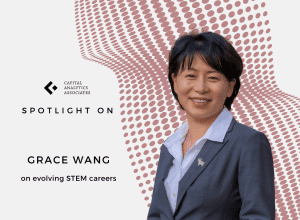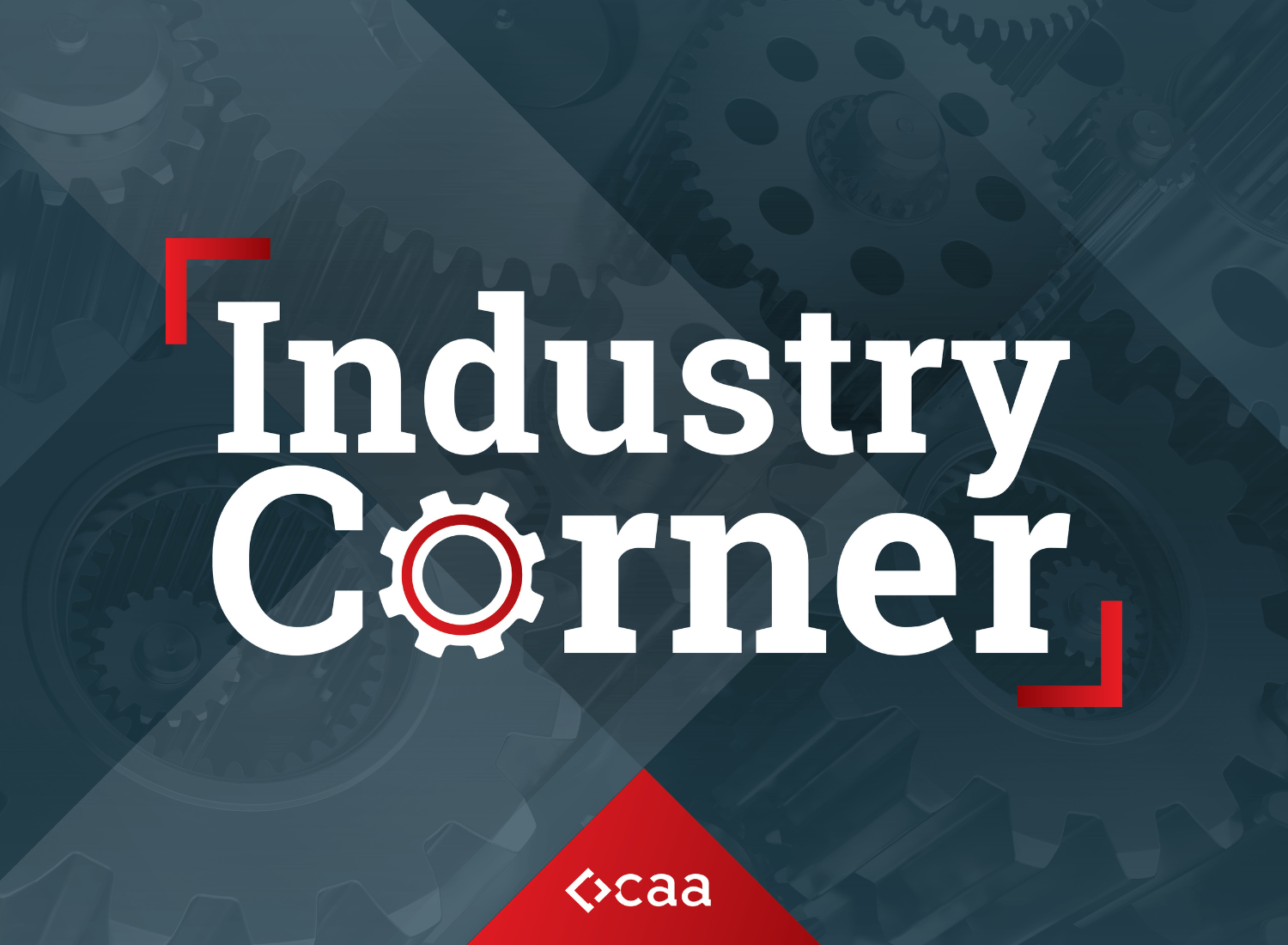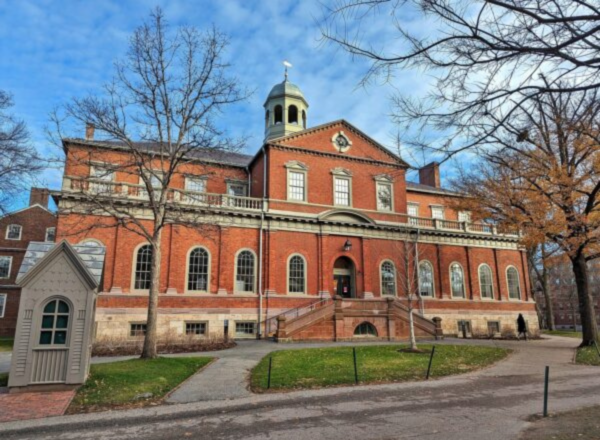Spotlight On: Grace Wang, President, Worcester Polytechnic Institute (WPI)
 January 2024 — In an interview with Invest:, Grace Wang, president of Worcester Polytechnic Institute (WPI), discussed the institution’s transformative approach to education, grounded in project-based learning that cultivates adept learners ready for evolving STEM careers. Wang emphasized WPI’s commitment to diversity, equity and inclusion, financial aid and student support initiatives.
January 2024 — In an interview with Invest:, Grace Wang, president of Worcester Polytechnic Institute (WPI), discussed the institution’s transformative approach to education, grounded in project-based learning that cultivates adept learners ready for evolving STEM careers. Wang emphasized WPI’s commitment to diversity, equity and inclusion, financial aid and student support initiatives.
As the new president of WPI, what is your vision for the institution?
As a newcomer, I’ve come to see the ongoing evolution that defines WPI. Our distinctiveness lies in our unparalleled educational approach, particularly with STEM, which fuels my passion for shaping the future of WPI. WPI’s legacy in project-based learning spans five decades, setting us apart from traditional experiential learning. Our approach is marked by immersive interdisciplinary experiences.
At WPI, every student must complete project-based learning, a requirement tied to graduation. With more than 50 global project centers and over 1,100 students dispatched in the last academic year, our approach extends beyond borders. These intensive seven-week off-campus ventures mirror real-world challenges, fostering teamwork in authentic settings.
This method is transformative. Collaborative interdisciplinary teamwork becomes second nature, mirroring professional dynamics. Our students emerge adept at seamless collaboration, adaptable problem-solving and impactful change-making. This unique education equips them to be job-ready, cultivating leadership qualities that resonate throughout their careers, even producing CEOs within our alumni network.
This distinctiveness fuels my aspiration for WPI as a trailblazer in transformative STEM education, leading the way as a research university. Our focus on research for impact, not just process, further sets us apart. Our journey is about evolving education, pioneering research and fostering a legacy of leadership.
Given all that you’ve mentioned, what are your top priorities for realizing that vision?
Our focus lies in three key areas. Firstly, we aim to drive transformative STEM education. WPI’s pioneering approach is well ahead of its time, particularly in the rapidly evolving STEM landscape. The exponential rise of technological breakthroughs accentuates the need for education to produce job-ready graduates adept at navigating dynamic workplaces. Our project-based learning strategy positions students to seamlessly integrate into ever-evolving STEM careers.
Equally vital is our commitment to shaping an immersive student experience. Education extends beyond classroom boundaries, necessitating a balance between effectiveness and mental well-being. Initiatives like the “Insight” group and our expansive student clubs enrich the learning journey and foster personal growth, ensuring education is both stimulating and fulfilling.
Lastly, our priority hinges on impactful, interdisciplinary research. Gateway Park, at the crossroads of AI, life sciences, robotics and more, serves as our innovation epicenter. This strategic positioning empowers us to harness the potential of these domains and deliver outcomes of profound societal impact. Our unwavering dedication to these facets propels us forward on a trajectory of cutting-edge interdisciplinary research.
What initiatives has WPI implemented to foster diversity, equity and inclusion?
Diversity, equity and inclusion are the core of our institution’s essence, akin to its DNA permeating every aspect. This philosophy resonates in various dimensions, notably our global project centers. Our firm resolve to ensure financial parity is manifested in our global project centers, where a remarkable 88% of last year’s graduates engaged in off-campus experiences, a number substantially surpassing most peers. Financial aid plays a pivotal role, in democratizing access, fostering awareness and broadening horizons that might otherwise remain distant. This commitment materializes in the support we extend to students yearning for such opportunities.
Our equity and well-being commitment finds form in recent initiatives. The Center of Well-Being, a cornerstone of the past academic year, caters to both students and faculty. We’ve also carved identity spaces and sanctuaries for LGBTQIAP+ and BIPOC students, nurturing a supportive community. Our approach melds formal support with peer interactions, enhancing community experiences.
Evaluating higher education’s access and affordability entails a broader vista, extending beyond campus years. It’s the long-term social mobility we ignite that counts. Here, WPI shines through comprehensive career services. Our robust four-year graduation rate, consistently eclipsing 80%, stands in stark contrast to national averages. This early entry into the workforce yields personal and societal advantages.
Further, our remarkable first destination placement rate surpasses 90%, which is a testament to our alumni’s lasting impact. Their impressive starting salaries and sustained earnings over a decade showcase societal contributions and personal sustainability. This narrative signifies enhanced social mobility, exemplifying the enduring financial prowess our students attain, lasting far beyond their time on campus. We intend to empower them not just in the present but for years post-graduation.
What are some challenges higher-education institutions are facing and what strategies is WPI employing to address them?
The current landscape within the higher education sector is undoubtedly fraught with challenges. On one hand, we confront the imperative of ensuring access and affordability for our students, while on the other, we grapple with the ever-present specter of inflation. Here at WPI, we take a deliberate approach, striving to curtail significant tuition hikes that could adversely impact our students. Simultaneously, we must contend with the multifaceted demands of sustaining our faculty, advancing research and upholding the quality of our facilities, including residence halls, labs and classrooms. This complex balancing act resonates across the higher-education sphere, a challenge that numerous institutions are navigating.
For this reason, fostering partnerships emerges as a strategic imperative. Rather than approaching the situation as a zero-sum game, our philosophy is rooted in expanding the pie collectively. Regionally, our focus centers on nurturing academic alliances, particularly in collaboration with industry and governmental entities. Aligning with sectors that hold the utmost importance and are positioned as top priorities within the industry, we strive to foster a trajectory of mutual growth.
What is your perspective on the future of WPI and the higher-education sector in the region in the near term?
The Massachusetts landscape, from Boston to Worcester, pulses with an invigorating energy, especially within higher education. It’s an undeniable hub of abundant talent. In my view, we’re poised to shape ourselves into a genuine talent magnet. While we’ve made strides, there’s room to curb the export of our trained individuals. This shift isn’t just about local interests; it’s a vital ingredient for regional, state and national growth.
A talent magnet boasts crucial attributes. It thrives on both the density and exceptional quality of talent, spanning diverse skills, backgrounds and competencies at various degree levels. This diversity resonates with employers, forming a mosaic of expertise that breathes life into organizations.
Our focus for Worcester and the broader region centers on becoming an unequivocal talent magnet, particularly in life sciences, sustainability, robotics and manufacturing. These intersections hold tremendous growth potential, fueled by the foundation we’ve laid. Our vision extends beyond attracting individuals; we seek to foster growth, partnership and a vibrant local ecosystem that transcends borders.
For more information, please visit:













